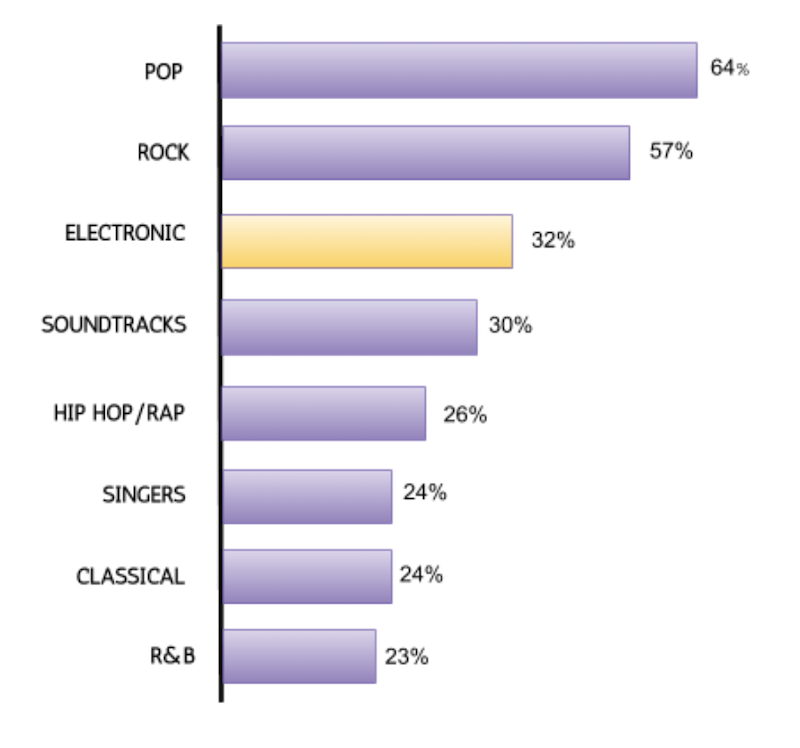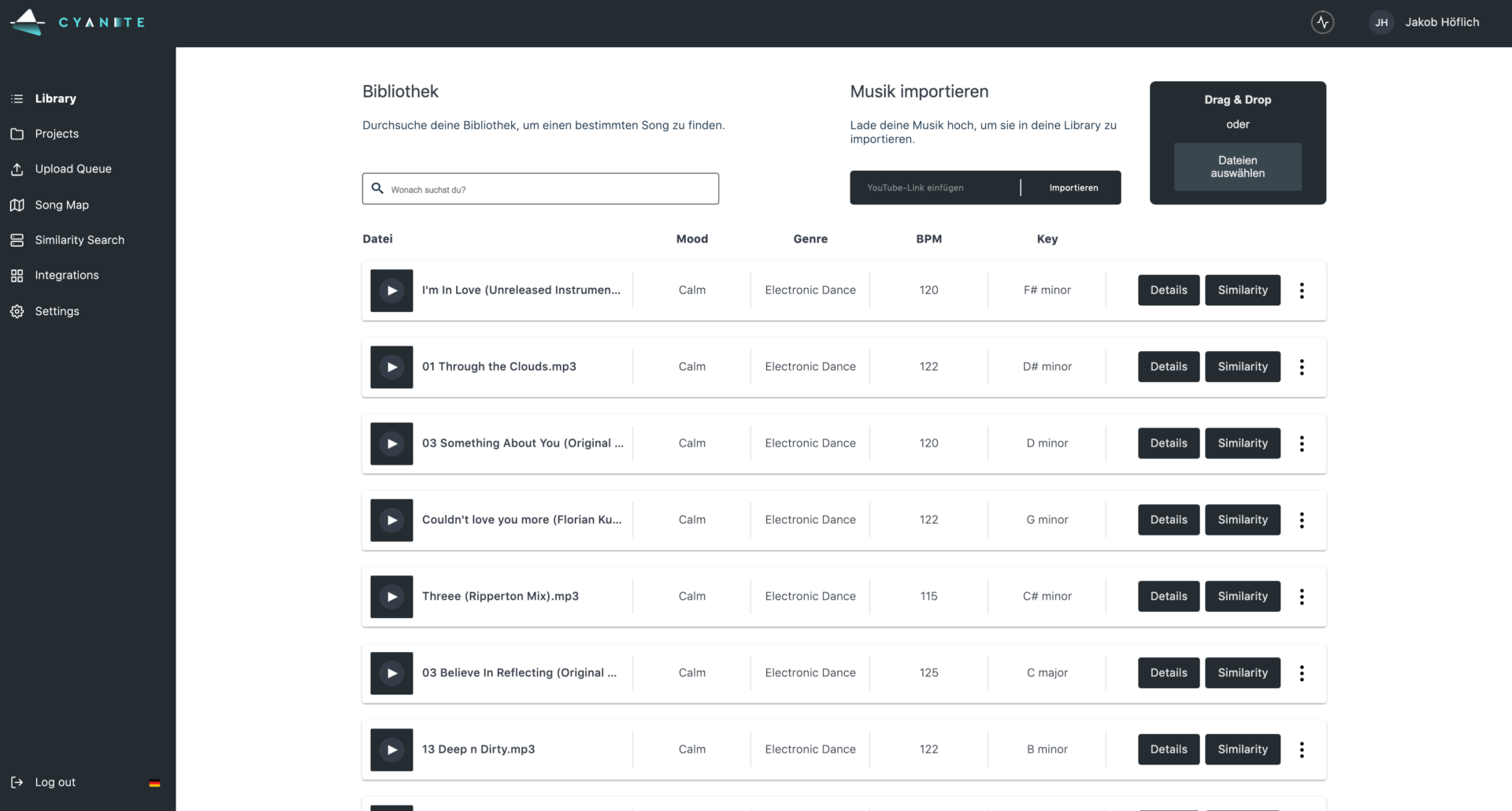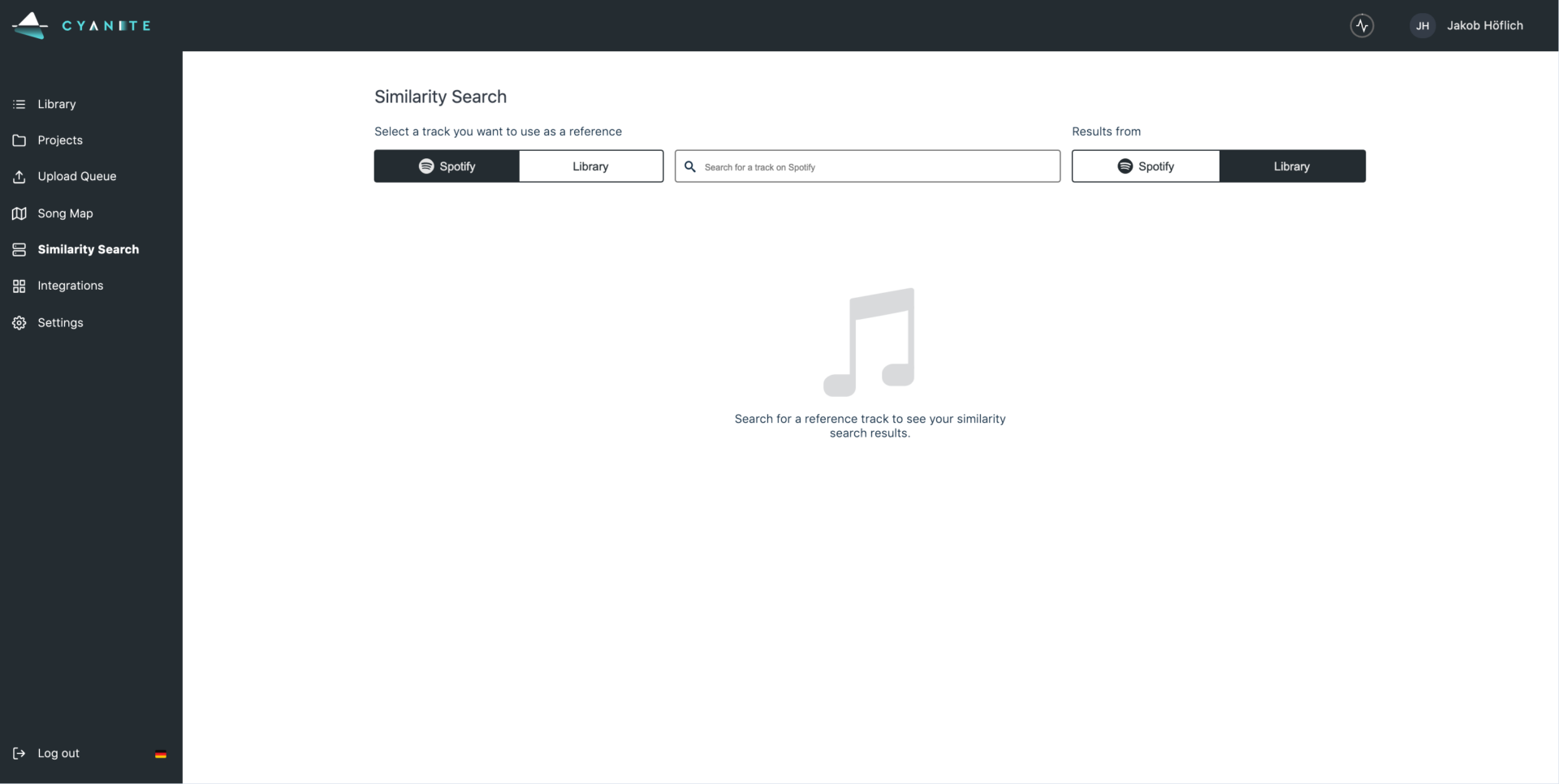
Electronic music experts reveal 4 essential factors on AI-tech adoption for SMEs
In this guest article, Laura shares 4 essential factors on adoption of AI solutions within the industry based on her research.
In electronic music, original scenes are challenged as some small-scale events burgeon into festivals, as market growth and fan-bases develop, DJ cultures become celebrity cultures – with luxury brands like Porsche signing up female Djs – and as electronic music events become cultural experiences. For a market that has quickly turned from niche to mainstream, it may not be a surprise to see that the week’s top 100 most played Spotify tracks are almost entirely dominated by electronic music production.
A recent survey presented at the International Music Summit in 2019, ranks electronic music as the World’s 3rd most popular genre with an estimated 1.5 billion people typically listening to it.

Source: IFPI Music Consumer Insight Report 2018
“The introduction of mature AI allows creatives and corporations alike to reimagine the creative process.”
This snapshot of contemporary popularity works just as another clear indicator of a new mainstream – in which electronic music has become more central – within the global popular music market. AI is having a significant impact on those roles that are currently most systematic and routine in nature: search, audit and elements of due diligence. The introduction of mature AI allows creatives and corporations alike to reimagine the creative process, target new fans, and identify the next set of musical stars with greater accuracy and precision than we ever imagined.
The research highlights the challenges and opportunities induced by AI in this booming industry, and it focuses on the “What and Why” of SMEs managerial processes under a new edge. Many academic studies have analyzed the cultural, political and social dynamics of this field, but very few have analyzed the economics of this industry. Through semi-structured interviews of both actors – providers and users of AI music marketing tools – combined with qualitative research of primary data, the study relies on the so-called TOE framework. This is one of the most insightful for IT and system adoption research and it helps to identify the different factors of adoption into three dimensions of enterprise context: technological, organizational and environmental.
FACTOR 01: Trust the machine

It’s essential that humans and AI-powered machines collaborate.
FACTOR 02: Agility wins
Based on the findings, it can be argued that technical skills and financial resources are connected. We can also notice a variation between the replies considering the role played by financial resources, where the responses were heavily dependent on the cost of the exact system the respondents had operated with.

Agility fosters efficiency
FACTOR 03 – Tech-savviness is not key
While providers of AI music solutions do not perceive tech skills as an essential factor, pointing out that sales directors have normally limited knowledge of marketing technology tools and did not use this type of innovative solutions in the past. Consequently, digital tools are not often at the top of sales managers priority list, but they recognize the value of adopting them.
FACTOR 04 – Shift of power

Knowledge through data is more and more accessible
However, at the moment, this could be a false hope since marketing and managerial skills are still required.
“We enter a new era where humans will be complemented by AI in
various forms and at different extent.”
Laura Callegaro conducted this study during her master’s at the Berlin School of Economics and Law. She is a longtime electronic music expert and a real marketing wizard. As co-founder of the Berlin-based techno label JTseries and music-arts collective ENIGMA, Laura is actively contributing in revamping the music industry.

For more of our thoughts on Artificial Intelligence and Music, check these out:
Ellen Allien, Roman Flügel and Dub Isotope: An AI Analysis of Techno and Drum ‘n’ Bass
4 ways how we use music to regulate our emotions in everyday life
Podcast: Cyanite’s Data Scientist Roman about the potential and challenges of AI in music






